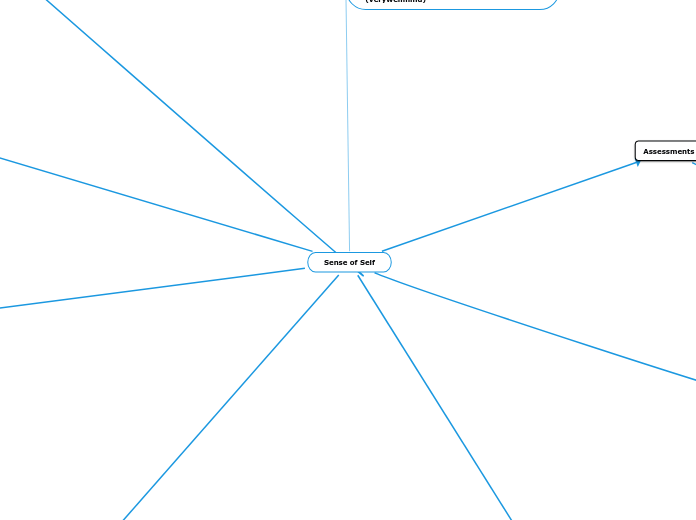Sense of Self
Defining features
"children develope knowledge, beliefs, jedgements. and feeling about themselves, sentiments collectively"
"how good am i as a person?"
"Who am i?
Assessments
Formative assessments
At the end of each section in the unit have student's work on group projects that focus on positive interdependence that gets students to bring each other up instead of competing.
Pre assessments
A checklist/self reflection where students mark on a scale from 1-10 their feelings on certian topics concerning themselves
Generalization
generalization
Children only need to feel accepted by their peers to have a healthy sense of self
"the quality of cargiver and peers influences their belief that they are worthy of love" (457)
In reality acceptance alone isn't enough. Students make a lot of friends in school but are so focused on being liked and perceived in a positive light that they don't focus on finding quality relationships
Overgeneralization
Theories and theororists
Eriksons stages of development
Industry v. Inferiority
It is an ability that contributes to emotional health throughout life during both childhood and adulthood. Failing to master these critical tasks, however, can result in social and emotional struggles that last a lifetime. (verywellmind)
identity v role confusion
Self-confidence: Those who are able to develop a strong sense of identity are better able to have self-confidence, or a sense of trust in their abilities, qualities, and judgements.
Sense of independence: Those who receive proper encouragement and reinforcement through personal exploration will emerge from this stage with a strong sense of self and a feeling of independence and control. Those who remain unsure of their beliefs and desires will remain insecure and confused about themselves and the future (verywellmind)
Narrow topic
Positive interdependence
Social acceptance through group work
individuals can attain their goals if others in their group also reach their goals
students are more likely to promote one another’s success, instead of competing with or ignoring one another.
Homophily
Goes towards people that you think will alight with your beliefs or is like you over people you think would test that.
By going against that it can help strengthen and change your original beliefs or ideas by being exposed to a diverse group of people and ideas
Cross circular ties
Writing
Independent writing at the end of the day where the teacher either has reflection questions or allows students to write for a couple minutes on their day. Encourages students to think about their strengths weakness, wins, improvements and goals.
Science
Hands on activity that requires groups of 5. The groups dont compete and instead choose their group project and equally split up the work. They have to work together to get credit or make a working science project. Their will be check ins with the teacher to make sure their on task and working as a group smoothly.
Broad areas of success
Emotional intelligence (283)
" the ability to perceive, understand and regulate affective feelings"
Emotional regulation (607)
"strategies to manage affective states"
Coping skills
developmental attributes
Background
Culture
"tells children what they should think about. how they should relate to other people, and what it means to be a good person." (475)
"culures also influence how much chuldren think about peoples thoughts and feelings"(474)
Gender
"much of the peer pressure to act appropriately for ones gender come from within rather than from others. The tendency for children and adolescents to conform to their own ideas about appropriate behaviors" (464)
